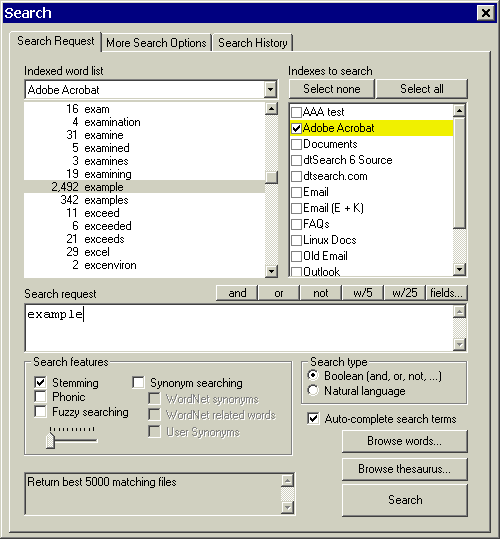


For example, "first-class" would be indexed as "firstclass." Ignore hyphens - Hyphens are ignored during indexing.For example, "first-class" would be indexed as "first-class." Treat hyphens as searchable - Hyphens are treated as searchable text.For example, "first-class" would be treated as "first class." Treat hyphens as spaces - This is the default method of handling hyphens for indexing.Set options for handling hyphens in terms as needed: If a machine has more than 8 processors, only a maximum of 8 workers will be used.Ĥ. When 2 is selected, the machine running the indexing process will use 2 workers per available processor, with a limit of 8 workers. Maximum index workers - By default, 2 is selected.The index partition size determines the maximum number of documents that can be added to an index partition before creating another partition. The default index partition size is 125,000 documents. When 16 is selected, the machine running the indexing process will use up to 16 index partitions. You can select up to 32 index partitions. Maximum index partitions - By default, 16 is selected.This is the recommended setting for cases on network drives, NAS, or SAN devices.
DTSEARCH GET WORD POSITION UPDATE
The indexer will automatically delete the word list files when the index update completes. Use this setting to instruct the indexer to use the local user’s temporary folder for these files. By default, these files will be placed in the index folder. Use local folder for temporary files during indexing - During indexing, the dtSearch Engine may need to create temporary files to store word lists that are too large to fit into memory.To make this type of text searchable, enable automatic insertion of word breaks around Chinese, Japanese, and Korean characters so each character will be treated as single word. Because there are no spaces separating the words on each line, the indexer sees each line of text as a single long word. Instead, the text appears as lines of characters with no spaces between the words. Some Chinese, Japanese, and Korean text does not include word breaks. Insert word breaks between Chinese, Japanese, and Korean characters - Check this box if you plan to search Chinese, Japanese, or Korean documents that do not contain word breaks.Enabling this option can help to increase performance of indexing, searching, and review because only text from unique files is added to the index. The "parent" duplicate, DupStatus= P, is also included. Duplicate records have a DupStatus of either G or C. Ignore duplicate documents during indexing - When enabled prior to indexing, LAW will not index any duplicate records in the case.This option can be useful, for example, when you are searching for a term, such as a capitalized name that can be confused with a common non-capitalized word.

In a case-sensitive index, "CREDIT", "Credit", and "credit" would be three different words.

Indexing options provide you with control over how certain words, punctuation, and other text elements are handled during indexing. Before you perform any action that involves indexing, consider configuring indexing options.


 0 kommentar(er)
0 kommentar(er)
